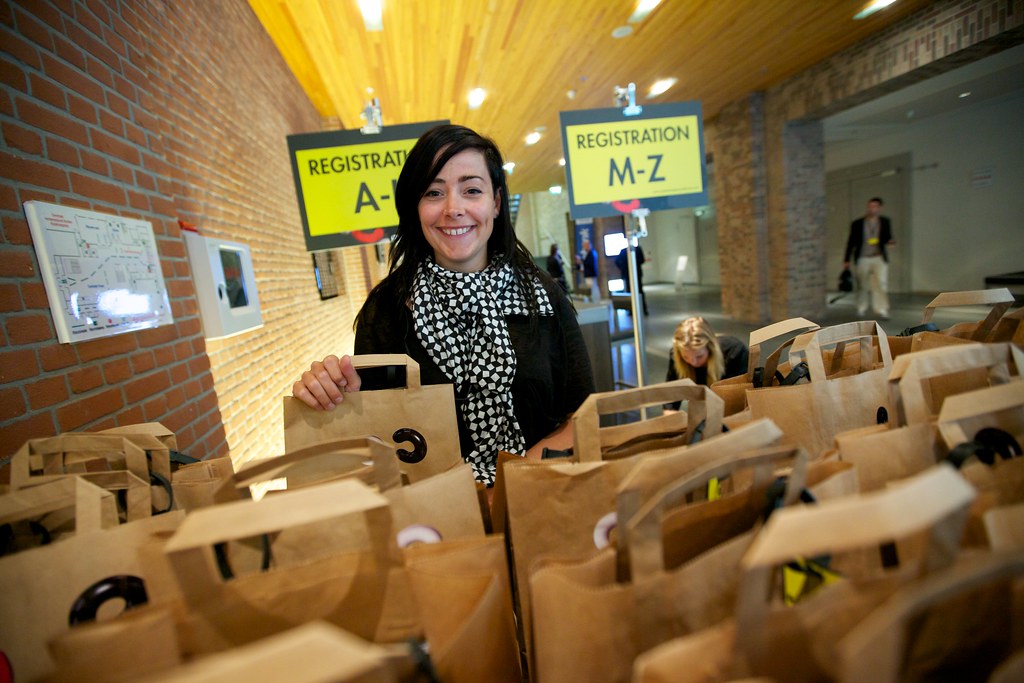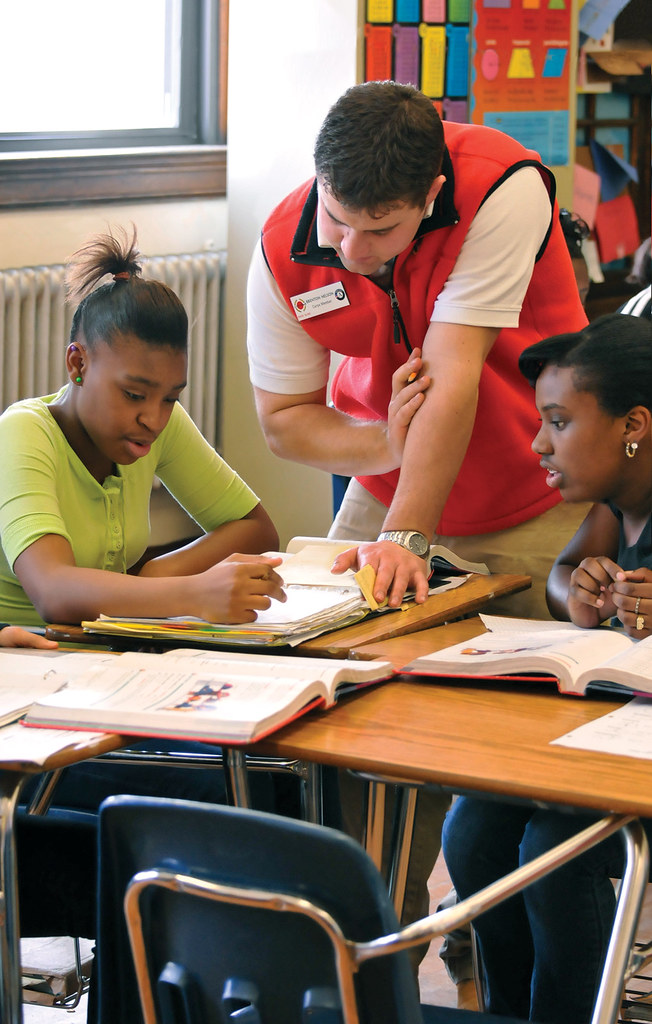14
You may already be envisioning with excitement your journey toward becoming a teacher, perhaps by walking across a stage to accept your diploma and later getting the keys to your very own classroom. While this is an important first step in your path toward becoming a professional educator, your journey does not end as soon as you have completed your teaching credential. You will have a lifetime of opportunities to continue learning, growing, and leading in the ever-changing and evolving field of education.
So far together, our journey through this book has surveyed the various roots of teaching in the United States, including an overview of the teaching profession, various influences on student learning, philosophical and historical foundations, structures of schools, ethical and legal issues, curriculum, and classroom environment. But now what? What is the path forward?
In this chapter, we will close with a brief look at the path ahead. We invite you to stay informed, stay engaged, and stay focused.
Chapter Outline
Stay Informed

As we’ve mentioned in other places in this book, one of the most exciting parts of being a teacher is that you get to be a life-long learner yourself. First of all, you will continue to learn and hone your craft as a teacher through many venues. You may choose to complete additional courses, future advanced degrees (maybe even a doctorate so you can work with preservice teachers as a college professor), or certificates (like becoming a Google-certified teacher[1]).
Another important way to stay informed is to become a member of professional organizations that support teachers. These organizations are often focused on specific sub-fields, like literacy, math, or science, but some organizations support teachers in general. These organizations often have both state and national (or even international) networks and conferences, which can be an exciting way to keep your learning current while meeting other educators like you. Sometimes students and early-career teachers can join these organizations or attend conferences at a discounted rate–sometimes even for free. Table 8.1 lists a few of these professional organizations.
Table 8.1: Professional Organizations for Educators
Name of Organization |
International, National, State |
Focus of Organization |
| AERA (American Educational Research Association) | International and regional chapters | All areas of education with special interest groups, such as teacher research |
| ASCD (formerly the Association for Supervision and Curriculum Development) | International; state chapters (and even college chapters) also exist | General K-12 (and sometimes K-16) education |
| ILA (International Literacy Association) | International and state chapters | A global, literacy-focused professional organization serving K-12 and higher education |
| NABE (National Association of Bilingual Education) | International, regional, and state chapters | Professional organization devoted to representing bilingual/multilingual students and bilingual and dual language education professionals |
| NAFME (National Association for Music Education) | National, state, and local chapters | An organization of American music educators dedicated to advancing and preserving music education as part of the core curriculum of schools in the United States |
| NCSS (National Council for the Social Studies) | International, national, state, and local chapters | A U.S.-based association devoted to supporting social studies education |
| NCTE (National Council for Teachers of English) | National, state, and local chapters | A United States professional organization dedicated to improving the teaching and learning of English and the language arts at all levels of education |
| NCTM (National Council of Teachers of Mathematics) | International, national, and regional chapters | The world’s largest mathematics education organization |
| NSTA (National Science Teaching Association) | National, state, and local chapters | An association of science teachers in the United States and is the largest organization of science teachers worldwide |
| TESOL (Teachers of English to Speakers of Other Languages) | International, national, and state chapters | The largest professional organization for teachers of English as a second or foreign language |
In addition to these formal venues, you can stay informed through keeping up with high-quality websites, podcasts, and other online resources. A high-quality online resource is often vetted by an editor or a content expert. While sites like TeachersPayTeachers and Pinterest can have some ideas for inspiration, these sites are not moderated and therefore are not guaranteed to have high-quality, accurate content and resources. Below are some websites and podcasts that you might find useful.
| Websites: | Podcasts: |
One final way for you to stay informed as a future teacher is to keep up with current events, policy and legislation, and other visible ways education is in the news. While sometimes it can feel overwhelming to maintain your day-to-day responsibilities as a teacher while also keeping an eye on outside events, this awareness of current events is vital for your ongoing advocacy for your students, your colleagues, and yourself. Here are a few online resources that are completely devoted to covering headlines related to education. Note: some of these sites required paid subscriptions.
- Chalkbeat
- EducationDive (divided into K-12 Dive and HigherEd Dive)
- The Atlantic: Education
- EducationWeek

Education is constantly evolving, and often outside forces have long tried to shape the trajectory of education. For example, just in the first few years of the 2020 decade, headlines about education addressed the pandemic, issues of equity with online learning, critical race theory in schools, and more–topics that were of timely consideration due to other social, economic, and political factors and contexts. Listening closely to these news stories can also highlight misunderstandings people have about how education works in the United States. For example, the recent backlash against critical race theory being taught in schools sometimes implied that the Federal Department of Education endorsed or required its teaching. You know from your journey through this text that the Federal Department of Education has no jurisdiction over curriculum; such educational decisions are left to individual states.
Critical Lens: Critical Race Theory in Education
In 2021, Critical Race Theory became an often-covered headline related to education. In this piece[2], Deborah Plummer explains what Critical Race Theory is and why it is controversial. In this interview with NPR[3], Gloria Ladson-Billings, one of the first people to apply Critical Race Theory to the field of education, explains some of the recent bills to block the teaching of Critical Race Theory. After you have explored those two sources, consider: how did what you read and heard in these pieces compare with what you were hearing on the news? What new understandings and questions do you have?
Furthermore, part of staying informed involves seeking news from multiple sources instead of accepting as truth what you hear from one source. Make sure that you are seeking input from well-studied experts in the field. When reading the news about education with a critical lens, here are a few questions to consider.
- What is the headline/story about?
- Why is this a significant event to cover?
- Who seems to be driving the narrative in the piece?
- Whose voices seem to be excluded?
- What emotional response from the listener/viewer/reader does the piece seem intended to evoke, and why?
- What stances from actual stakeholders in education–teachers, families, students, administrators, or others–are centered or de-centered?
When you listen to current events and stories about education in the news with a critical lens, you will sometimes notice that teachers’ voices are often not heard. Deprofessionalization is a common problem in education. When education is micromanaged–when teachers are told what to teach and given scripted, “teacher-proof” curriculum to teach from–and when teachers are undervalued–expected to do extensive work for low wages–deprofessionalization occurs. As you learned in Chapter 3, education’s long history in the United States as a female-dominated field directly correlates to deprofessionalization, especially when women teachers were paid less and encouraged to think of their work as a “calling” instead of a profession.
As you’ve read so far, staying informed is part of your ongoing journey toward becoming a teacher, and you should continue to stay informed even after you earn your teaching license. Next, we’ll consider ways to stay engaged.
Stay Engaged
The best way to learn to be a teacher is to get experience actually working with students, so consider various ways to stay engaged with young people. One way to stay engaged is to seek out opportunities to volunteer in local classrooms. Teachers can always use help with creating classroom materials, working one-on-one with students, and other classroom tasks. You also may be able to apply to be a substitute teacher in your local school district, even before you finish earning your teaching credential. While this can be a powerful way to develop your future teaching skills, you should also be aware that being a substitute teacher is not the same as being a full-time classroom teacher.
Another way to stay engaged is through opportunities in your local community. You may be able to help with an after-school tutoring program or homework club. If your community has a high number of refugees, there may be special programming available to support this portion of the population. You could also be involved with designing and implementing curriculum for local summer camps or children’s museums. Wherever your passions lie, there are likely to be many opportunities to stay engaged with young people that will strengthen your skills as a future teacher.

However you choose to stay engaged, be sure you are aware of any policies various organizations may have about volunteers and visitors. Many public schools require background checks for volunteers who will be in schools regularly (such as when you are completing a practicum experience); others may simply ask you to check in at the front office when you arrive and let them know when you leave. As a volunteer, you should also never be alone with a student. These rules and expectations are in place to keep students safe, so it is important that you are following them at all times.
One final consideration as you stay engaged is to make it a priority to stretch yourself outside of your comfort zone. While it may be extremely tempting to go back to the summer camp you loved as a child as a counselor now, that experience is one you are already familiar with. Go beyond your local community and experiences to expose yourself to different places, people, and ways of thinking. Your future classroom will be full of diverse learners, and stretching your horizons now will only make you a more effective teacher.
Stay Focused
Finally, the path forward will require you to stay focused. Teaching is an exciting profession. No day is exactly the same: you will have different learners with different experiences, strengths, and needs, and this community will shape the outcome of every day in your future classroom. With this excitement comes other emotions too. In your determination to become the best possible teacher, you will also find some self-doubt. Remember that it can take three to five years to feel like you have mastery of your craft as a teacher, so it is quite common to feel like you don’t have all the tools in your teacher toolbox when you are an early-career teacher. As we mentioned above, staying informed is one of the best parts of being a teacher: even veteran teachers can keep learning and adding to their teacher toolboxes.
Another emotion you might feel is exhaustion. You know from your own experience as a student, from your readings in this book, and from your interactions with friends and family members who are educators that teaching is hard work. You work long hours with few breaks, and then beyond the instructional day there are emails, family conferences, faculty meetings, and other special events. You find yourself in the grocery store aisle worrying about one of your students and if they will have food to eat that night, or if what you said to one student when you were frustrated came across much harsher than you meant it to. You’ll find yourself watching TV or talking to friends when new ideas for lessons come to mind, or when you realize you have something else you need to add to your never-ending to-do list.
In these moments, stay focused on the outcome. You have worked hard for the privilege of guiding your future students’ learning and growth. You also need to stay focused on your own well-being. Speak up when you are feeling overwhelmed, and carve out moments for yourself. Keep practicing hobbies that bring you joy. After all, if you aren’t taking care of yourself, it’s hard to be the best possible teacher for your students.
In this video, you’ll hear about 25 things you should know as you prepare to become a teacher to help you stay focused.
Conclusion
While our journey through the foundations of American education has come to a close, your journey toward becoming an effective, life-changing teacher is just beginning. In the years to come, you will continue to develop your craft by staying informed, engaged, and focused. You will have opportunities to see how the field of education is changing now and will continue to change in the future. You will even have opportunities to be a part of efforts to drive change. Knowing what has come before and understanding the deep roots American education has in historical, societal, economic, and legal realms will better equip you to analyze current trends and anticipate new ones. After all, education can be somewhat like a pendulum: certain beliefs and practices tend to fall in and out of favor every few decades.
One trend that will never change, however, is your role in advocating for all children. In her TED Talk, Rita Pierson explains why every kid needs a champion.
In her closing, Rita Pierson states, “Every child deserves a champion, an adult who will never give up on them, who understands the power of connection, and insists that they become the best that they can possibly be.” As a teacher, you can be that champion. By understanding the foundations of American education, you will be equipped to participate in ongoing advocacy for all students. You will have opportunities to work with colleagues and other stakeholders to make education a better place for teachers, students, families, and communities. As you go forth into the field of education, we challenge you to maintain a critical lens as you perpetually question how to make American education the most inclusive, effective, and successful for all of our learners and their communities.
